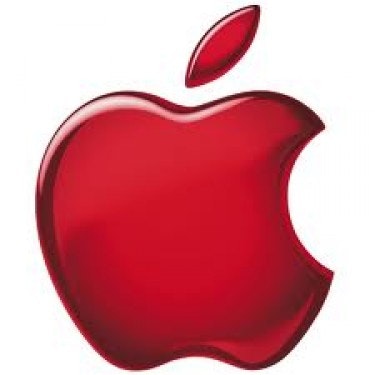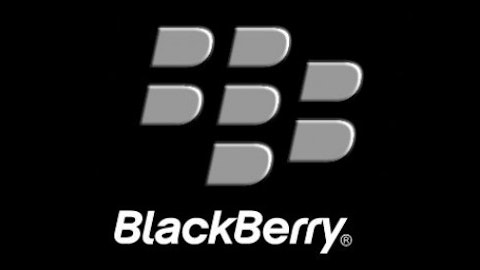Apple Inc. (NASDAQ:AAPL) is rumored to be starting a trade in policy. With more companies building “ecosystems,” Apple has no choice but to step up its game.
Buy an iPod/switch to Apple
When Apple Inc. (NASDAQ:AAPL) introduced the iPod, it wasn’t the first to market with a digital music player. It was, however, the first to gain widespread acceptance. While the iPad worked with more than just Apple personal computers, it led many customers to reconsider Apple as an alternative to their Windows-based PCs.
People started to switch sides and Apple Inc. (NASDAQ:AAPL)’s sales took off at an astounding clip. In 2003, the company’s sales were $6 billion. By 2012, sales had ballooned to $156 billion. Along the way, the company introduced the iPhone and the iPad that made switching into the Apple ecosystem all the more enticing. While these devices are the big business now, the PC business has been a notable beneficiary.
Since there were few competitors with such integrated product offerings, Apple Inc. (NASDAQ:AAPL)’s ecosystem, which includes iTunes, was an easy sell. Over the last few years, however, more companies have built out their own ecosystems.
An Android world
Google Inc (NASDAQ:GOOG) and its Android operating system is the first player to really take on Apple with any success. The company’s mobile operating system is pretty much free for any company to use, which has meant an explosion in the number of devices using Android.
Google Inc (NASDAQ:GOOG)’s Android works well with Google’s other services, such as the Chrome web browser. Advertising is an important component of Google Inc (NASDAQ:GOOG)’s top line. The more people it can get into its ad network, the more money it makes. So, the more companies selling phones and devices with Android the better.
Getting people onto Android is increasingly important for Google Inc (NASDAQ:GOOG), too, because it doesn’t have the same advertising dominance in mobile as it has online. That’s been pressuring margins over the last couple of years. With the stock priced for perfection, shrinking margins are a problem.
If the bottom line starts to stall, the shares could come crashing down quickly. More conservative investors should look elsewhere and shareholders should take some money off the table. That’s true even with the Android-driven ecosystem.
More than a book reader
Creating an ecosystem is the same logic behind Amazon.com, Inc. (NASDAQ:AMZN)‘s Kindle device. What started out as a simple e-book reader has quickly morphed into a relatively inexpensive tablet computer. While it isn’t as full-functioned as an iPad, it does more than enough to satisfy most customers.
Moreover, it gets people locked into Amazon.com, Inc. (NASDAQ:AMZN). Books, music, and video are all key products for Amazon and Kindle keeps customers coming back to the online retail giant. The shares, however, are also trading at all time highs even as growth spending pushed earnings into the red in 2012.
With the increasing cost of content to support Amazon.com, Inc. (NASDAQ:AMZN)’s Prime shipping and video streaming service, the company could quickly find its already thin margins squeezed even further. Going from mid single digit to low single digit profit margins can materially alter a company’s long-term outlook. And that’s just how thin Amazon’s margins are.
Conservative investors should be wary of Amazon.com, Inc. (NASDAQ:AMZN)’s “prime” share price.
Getting in on the act
Now, Microsoft Corporation (NASDAQ:MSFT) looks to get in on the ecosystem act, too. Its new Windows 8 OS has the look and feel of its Windows Mobile OS that runs on cell phones and tablet computers. While the new Windows OS is getting panned for its changes, it’s likely to catch on as more new computers get sold with the OS already installed.
Once customers are comfortable with the changes, buying a Microsoft Corporation (NASDAQ:MSFT) tablet computer or Windows Mobile phone will be equally as comforting an experience. Thus, an ecosystem is born. Microsoft shares have started to pick up now that investors are getting more comfortable with its mobile push. Sales, meanwhile, dipped in 2009, but have grown regularly otherwise. The bottom line, though weak recently, has been similarly strong over the past decade.
Microsoft Corporation (NASDAQ:MSFT) still has turnaround potential despite a recent price jump. Plus a 2.60% dividend yield and history of annual dividend increases should interest income investors.
Keeping ’em in the house
Apple Inc. (NASDAQ:AAPL) offering to let customers trade in their old phones will keep them in the Apple ecosystem and help boost sales of new products. It also lets Apple resell the old phones into emerging markets to get more customers hooked on the Apple way.
As the company looks to create more services, like it recently announced iTunes Radio service, keeping customers attached to the Apple ecosystem will be increasingly important. That’s particularly true as sales in mature markets inevitably slow.
Apple Inc. (NASDAQ:AAPL) shares yield around 2.80% and have been relatively weak of late. However, the company looks like it is making solid moves to solidify its market position. Conservative investors might actually prefer the turnaround potential here more than at Microsoft Corporation (NASDAQ:MSFT).
Reuben Brewer has no position in any stocks mentioned. The Motley Fool recommends Amazon.com, Apple, and Google. The Motley Fool owns shares of Amazon.com, Inc. (NASDAQ:AMZN), Apple Inc. (NASDAQ:AAPL), Google Inc (NASDAQ:GOOG), and Microsoft Corporation (NASDAQ:MSFT).
The article Maintaining the Apple Ecosystem originally appeared on Fool.com.
Reuben is a member of The Motley Fool Blog Network — entries represent the personal opinion of the blogger and are not formally edited.
Copyright © 1995 – 2013 The Motley Fool, LLC. All rights reserved. The Motley Fool has a disclosure policy.






